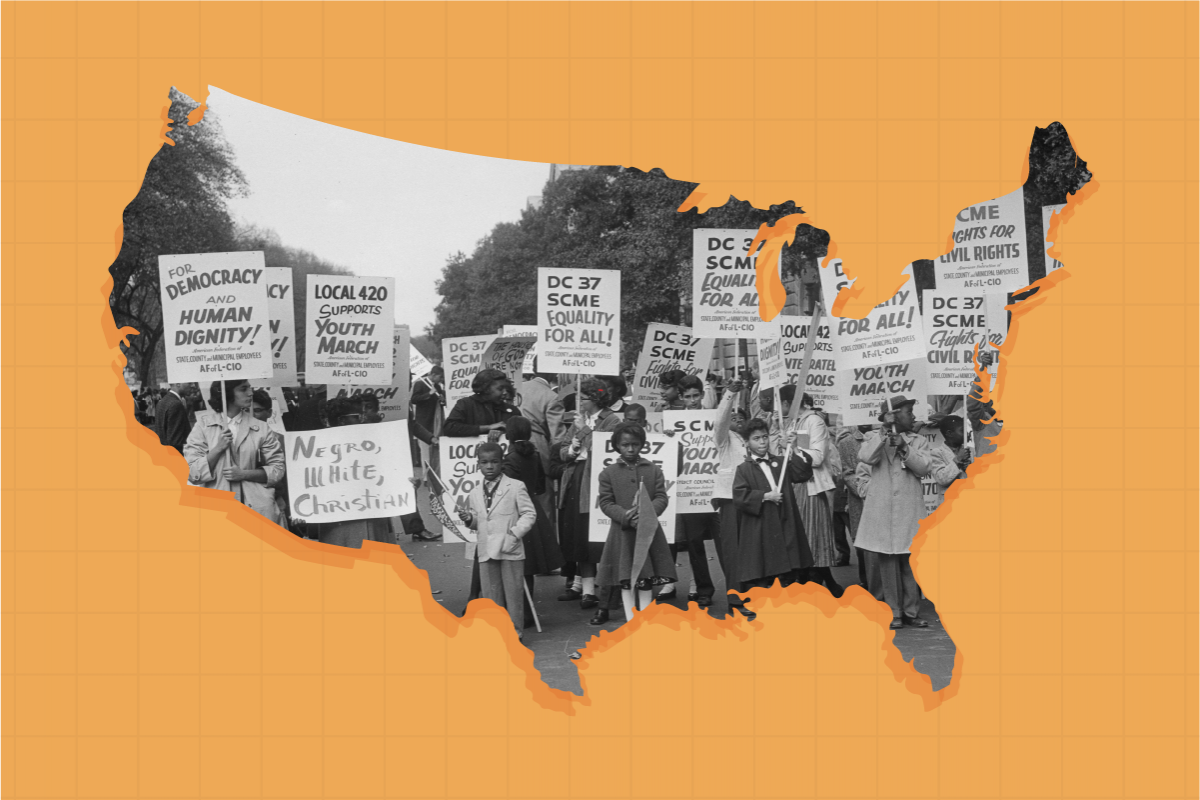
History Informs Our Understanding of Our Country. Let’s Tell It Truthfully.
Empowering teens as changemakers means engaging them in drawing on history to create new knowledge and new solutions. Here’s why it’s necessary in classrooms.
This June, the last surviving liberator of Auschwitz died at the age of 98. According to CNN, David Dushman was one of the soldiers who liberated the people being held at the Auschwitz concentration camp. Over time, Nazis murdered over one million Jewish people there.
As one of our staff read the article, she was reminded of meeting her college friend's grandmother, who was a Holocaust survivor and still bore the tattooed numbers on her body. Seeing the tattoo she had only read about in history textbooks was a visceral and impactful experience for her.
As survivors and liberators of atrocities pass away, it begs the question, who has the courage to tell their story? How do we keep history and the past mistakes in our collective minds enough so that we don't recreate them in the present or future? And, how do we do this in a way that supports healing and does not stymy it? What role does our educational system play in making sure students know about past societal harms so that they can learn from history and do their part to create a world where those types of atrocities no longer happen?
To us, these questions are worth exploring. Our Executive Director and Chief Scientist, Susan E. Rivers, Ph.D., has said that "Empowering teens as changemakers means engaging youth and communities in drawing on the past and present to create new knowledge." We think that teens are more than capable of contending with history to make choices that will result in a better future.
Teens' brains are undergoing the last major restructuring of development, one nearly on par with early childhood brain growth. That means the teen years provide the perfect opportunity to build habits to support a healthy, productive, and engaged life. Teens are at a developmental moment defined by many strengths. Because of where their brains are developmentally, teens are at a place where they can examine the role of race and racism in history and our society and then use that understanding to envision how to relate to one another in ways that move us forward, toward greater equity for all. One hallmark of the teen developing brain is an aptitude for risk-taking; they can leverage this inclination to envision and offer up completely new ways of working together, being in community, and participating in democracy.
Rather than viewing history as something to choose from selectively, teens are ready and willing to look at the whole with open eyes. And they can be supported in that when guided by skilled and compassionate educators in an educational system that promotes critical thinking and responsible participation in democracy.
At iThrive Games, we are dedicated to thriving. And for us, thriving comes from facing and acknowledging hard truths and tough emotions and choosing to contend with those truths and emotions in service of taking action to build a more equitable and just for all humans. Whether it's with our game-based learning units that explore identity and relationships or our 21st-century skill-building simulation games, we believe in creating opportunities for teens to learn from history and flex the muscles they'll need to envision and enact an equitable future where all can thrive.


